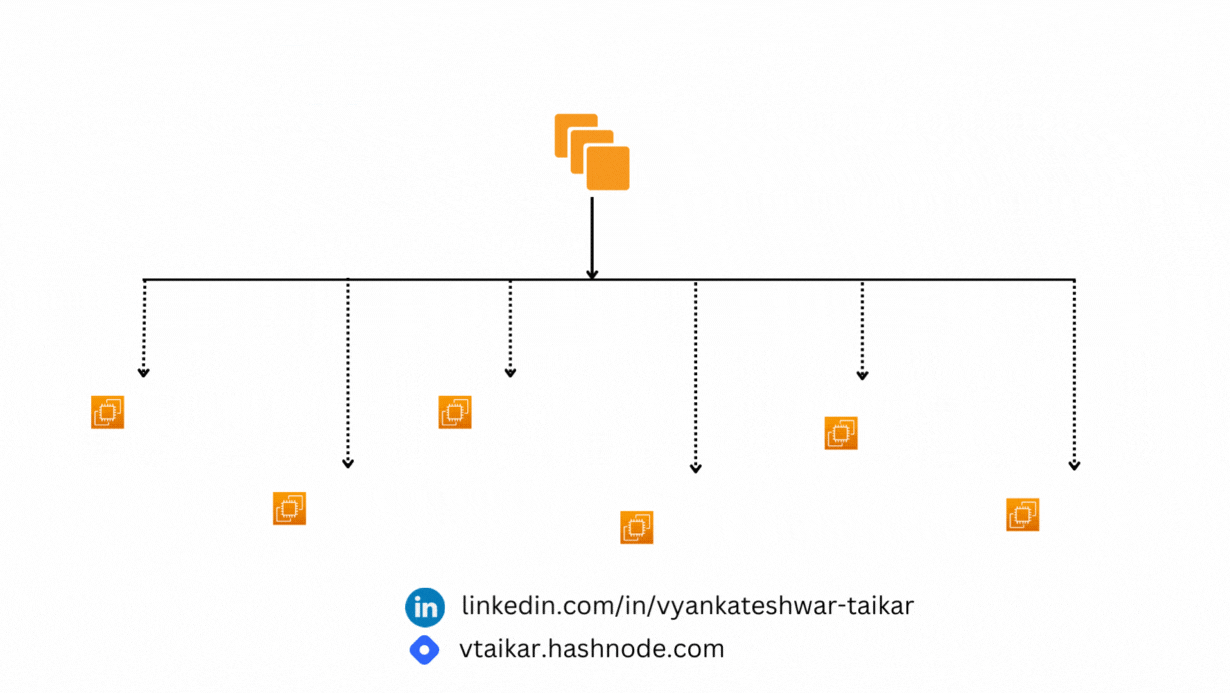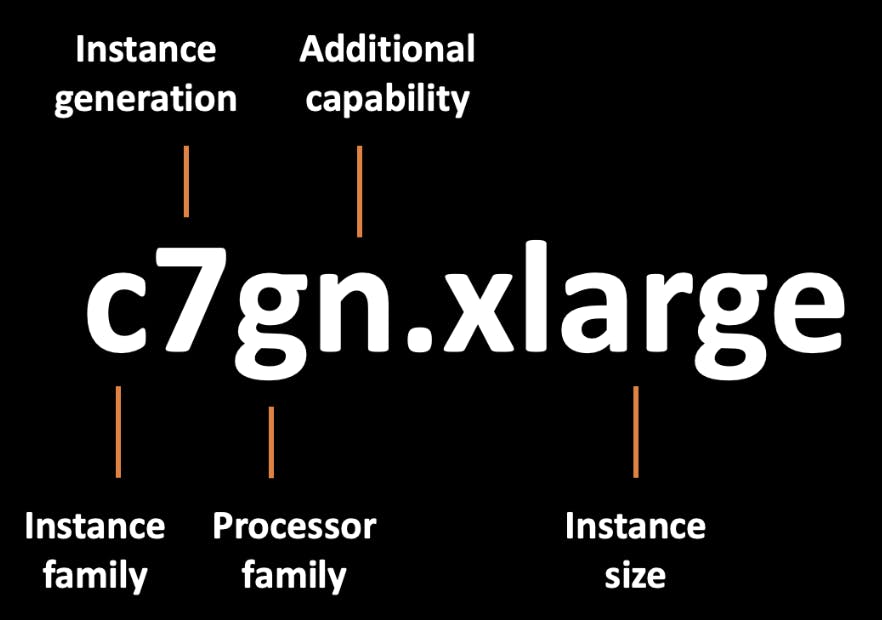What is EC2 ?
Amazon Web Services (AWS) provided a web service known Amazon Elastic Compute Cloud (EC2), which offers resizable compute the ability in the cloud. Its purpose is to make simpler web-scale cloud computing for developers.
You may purchase and set up virtual servers (often referred to as instances) in the cloud with EC2. Applications and various types of software can be deployed in these instances.
We have various type of Ec2 available on AWS we will see one by one in following way
Types of Ec2 instances

1. General Purpose Instances :
Use Case: Web Applications
Web applications can be deployed on general-purpose instances such as t3. They are suitable to a wide variety of workloads due to they provide a balance of memory, computing, and networking resources.
Use Case: Testing and Development Environments
Testing and Development Environments for testing and development work best for general-purpose instances. Some instances such as t3a offer burstable performance at an affordable price, making them appropriate for occasional resource-intensive jobs.
2.Memory Optimized Instances :
Use Case: In-Memory Databases
In-memory databases works best with instances which have been optimized for memory, such r5. They allow effective processing of data stored in memory by providing a large memory capacity.
Use Case: Analytics and High Performance
For analytics workloads require massive data sets to be processed in memory, memory-optimized instances are excellent. Examples with Arm-based architecture, like r6g, can offer higher efficiency.
3.Accelerated Computing Instances :
Use Case: Machine Learning
For applications involving machine learning, instances of accelerated computing such as p3 and p4 have been created especially. Because they have powerful GPUs, they can be used for deep learning model training and inference.
Use Case: Rendering Graphics
For graphic rendering applications, instances with improved computing capabilities, like g4ad, are suitable. They are capable of handling workloads demanding a lot of graphics.
4.Compute Optimized Instances :
Use Case: Encoding Videos in Real Time
In cases requiring quick data processing, such as as real-time video encoding, compute-optimized instances work exceptionally well. The Arm-based architecture of the c6g instances provides optimal performance.
Use Case: Simulation and Modeling
like the c5 series successful in sectors like automotive and aerospace, where accurate simulations are necessary to better design. These cases significantly simplify simulation processes, helping engineers to quickly iterate through designs. This is particularly beneficial in situations when productivity is directly affected by computational speed and simulation accuracy is required.
5.Storage Optimized Instances :
Use Case: NoSQL Databases
NoSQL databases which require fast storage for immediate data access are perfectly suited for storage-optimized instances like i3. They were created with I/O-heavy workloads in consideration.
Use Case: Data Warehousing
Instances with storage optimized, as i3en and HDD-based storage, are ideal for data warehouse applications where much of the data needs to be quickly stored and easily available.
6.HPC Optimize :
Use Case: High-Performance Computing Clusters
High-performance computing clusters are meant for using instances that are focused for HPC, such as the Arm-based hpc6gn. They offer the computational capacity needed for parallel processing in engineering and scientific applications.
Use Case: Data-Intensive HPC Workloads
For data-intensive HPC jobs requiring massive simulations or data processing require high-speed storage capabilities, HPC-optimized instances like hpc6s (Storage) are ideal.ed as i3en with HDD-based storage, are ideal for data warehouse applications where a lot of information has to be efficiently stored and available.
2.Instance type naming convention

More you can read here 👉 Click Here
I hope you enjoy the blog post!
If you do, please show your support by giving it a like ❤, leaving a comment 💬, and spreading the word 📢 to your friends and colleagues 😊
